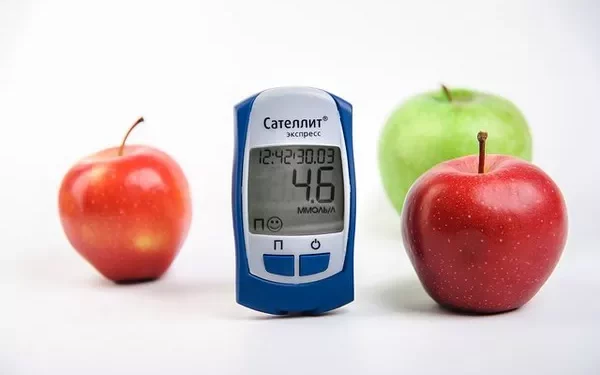Hypoglycemia, or low blood glucose, is a condition that requires careful dietary management to ensure that blood glucose levels remain stable and within a healthy range. Understanding what to eat for hypoglycemia is crucial for preventing symptoms and maintaining overall health. This comprehensive article explores dietary strategies and specific foods that can help manage and prevent hypoglycemia.
Understanding Hypoglycemia
Hypoglycemia occurs when blood glucose levels fall below normal, typically defined as a blood glucose level of less than 70 mg/dL (3.9 mmol/L). The condition can be caused by various factors, including excessive insulin use, prolonged fasting, intense physical activity, or certain medical conditions. Common symptoms of hypoglycemia include shakiness, sweating, confusion, irritability, rapid heartbeat, and in severe cases, loss of consciousness.
Effective management of hypoglycemia involves not only addressing immediate symptoms but also making dietary choices that help stabilize blood glucose levels over the long term.
Dietary Principles for Managing Hypoglycemia
To manage hypoglycemia effectively, it is important to understand the following dietary principles:
Regular Meal Timing: Eating regular meals and snacks helps maintain stable blood glucose levels throughout the day. Skipping meals or going for long periods without eating can increase the risk of hypoglycemia.
Balanced Diet: A balanced diet that includes carbohydrates, proteins, and fats can help prevent blood glucose fluctuations. Carbohydrates provide a quick source of glucose, while proteins and fats can help sustain blood glucose levels.
Low Glycemic Index Foods: Foods with a low glycemic index (GI) release glucose slowly into the bloodstream, helping to maintain stable blood glucose levels. Incorporating low GI foods into your diet can be beneficial for managing hypoglycemia.
Carbohydrate Counting: Understanding how many carbohydrates are in the foods you eat can help you manage your blood glucose levels more effectively. Carbohydrates directly impact blood glucose levels and are crucial for preventing hypoglycemia.
Foods to Eat for Managing Hypoglycemia
When experiencing or at risk of hypoglycemia, certain foods are particularly effective for raising blood glucose levels quickly and safely. Additionally, incorporating specific foods into your regular diet can help prevent future episodes of hypoglycemia.
Fast-Acting Carbohydrates
For immediate relief from hypoglycemia, consume foods or beverages that are high in fast-acting carbohydrates. These foods quickly raise blood glucose levels. Common options include:
Glucose Tablets: Glucose tablets are specifically designed to raise blood glucose levels quickly. They are available over-the-counter and are a convenient option for managing hypoglycemia.
Fruit Juice: A small glass of fruit juice, such as orange juice or apple juice, provides a rapid source of carbohydrates. Choose 100% juice with no added sugars for the best results.
Regular Soda: Regular (non-diet) soda contains high amounts of sugar and can quickly raise blood glucose levels. It is important to consume it in moderation to avoid excessive calorie intake.
Honey or Syrup: A tablespoon of honey or syrup provides a concentrated source of glucose. It is effective for quickly raising blood glucose levels.
Complex Carbohydrates
In addition to fast-acting carbohydrates, incorporating complex carbohydrates into your diet can help sustain blood glucose levels and prevent future hypoglycemic episodes:
Whole Grains: Foods such as brown rice, quinoa, and whole wheat bread are rich in fiber and complex carbohydrates, which help maintain stable blood glucose levels.
Legumes: Beans, lentils, and chickpeas are excellent sources of complex carbohydrates and fiber. They provide a slow and steady release of glucose into the bloodstream.
Sweet Potatoes: Sweet potatoes are a nutritious source of complex carbohydrates and fiber. They have a lower glycemic index compared to regular potatoes.
Proteins and Healthy Fats
Including proteins and healthy fats in your meals can help stabilize blood glucose levels and prevent hypoglycemia:
Lean Proteins: Foods such as chicken, turkey, fish, and tofu are good sources of lean protein. Protein helps maintain satiety and stabilize blood glucose levels.
Nuts and Seeds: Almonds, walnuts, chia seeds, and flaxseeds are rich in healthy fats and protein. They provide a steady source of energy and help prevent blood glucose fluctuations.
Avocado: Avocado is a healthy fat source that also contains fiber. It can be a satisfying addition to meals and snacks, helping to maintain stable blood glucose levels.
Fiber-Rich Foods
Fiber slows the absorption of glucose into the bloodstream, helping to prevent rapid spikes and drops in blood glucose levels:
Vegetables: Non-starchy vegetables such as spinach, broccoli, and bell peppers are rich in fiber and low in carbohydrates. They are excellent choices for maintaining stable blood glucose levels.
Fruits: Fruits such as apples, pears, and berries contain fiber and natural sugars. Opt for whole fruits rather than fruit juices to benefit from their fiber content.
Oats: Oats are a good source of soluble fiber, which helps regulate blood glucose levels. Choose steel-cut or old-fashioned oats for the most nutritional benefits.
Meal and Snack Ideas
Incorporating the above foods into well-balanced meals and snacks can help manage hypoglycemia and maintain stable blood glucose levels:
Breakfast: A bowl of oatmeal topped with fresh berries and a handful of nuts provides a balanced mix of complex carbohydrates, fiber, and protein.
Lunch: A salad with mixed greens, chickpeas, avocado, and a lean protein source, such as grilled chicken, offers a satisfying and balanced meal.
Snack: Apple slices with almond butter or a small handful of nuts can provide a quick and nutritious snack that helps stabilize blood glucose levels.
Dinner: A serving of baked sweet potatoes with a side of quinoa and steamed vegetables provides a balanced meal rich in complex carbohydrates, fiber, and protein.
Managing Hypoglycemia with Dietary Adjustments
In addition to choosing the right foods, certain dietary adjustments can help manage hypoglycemia effectively:
Regular Monitoring
Regular blood glucose monitoring is essential for understanding how different foods and meals impact your blood glucose levels. Use a blood glucose meter or continuous glucose monitor (CGM) to track your levels and adjust your diet as needed.
Meal Planning
Plan your meals and snacks to include a balance of carbohydrates, proteins, and fats. Eating smaller, more frequent meals can help prevent blood glucose fluctuations and reduce the risk of hypoglycemia.
Hydration
Staying hydrated is important for overall health and can also impact blood glucose levels. Drink plenty of water throughout the day and avoid excessive consumption of sugary beverages.
Avoiding Triggers
Identify and avoid foods or situations that may trigger hypoglycemia. For example, consuming large amounts of alcohol on an empty stomach or engaging in prolonged intense exercise without adequate nutrition can increase the risk of hypoglycemia.
Special Considerations for Individuals with Diabetes
For individuals with diabetes, managing hypoglycemia involves additional considerations:
Medication Management: Adjusting insulin or other diabetes medications based on your diet and activity level is essential for preventing hypoglycemia. Work with your healthcare provider to develop a personalized medication plan.
Carbohydrate Counting: Understanding how many carbohydrates are in your meals and snacks can help you make informed choices and prevent hypoglycemia. Use carbohydrate counting tools or apps to track your intake.
Education: Educate yourself about the signs and symptoms of hypoglycemia, as well as the appropriate actions to take in case of an episode. Regular consultations with a diabetes educator or dietitian can provide valuable guidance.
See also: Can You Have Hypoglycemia Even If You Eat Sugar?
Conclusion
Managing hypoglycemia requires a comprehensive approach that includes understanding the condition, making informed dietary choices, and implementing effective management strategies. By incorporating fast-acting carbohydrates for immediate relief, balanced meals with complex carbohydrates, proteins, and healthy fats, and fiber-rich foods into your diet, you can effectively manage and prevent hypoglycemia. Regular monitoring, meal planning, hydration, and avoiding triggers are essential for maintaining stable blood glucose levels and overall health. For individuals with diabetes, personalized medication management and education are crucial for successful hypoglycemia management. By following these dietary principles and strategies, you can effectively manage hypoglycemia and improve your overall well-being.
Related topics:
Can Too Much Alcohol Cause Hypoglycemia?

























